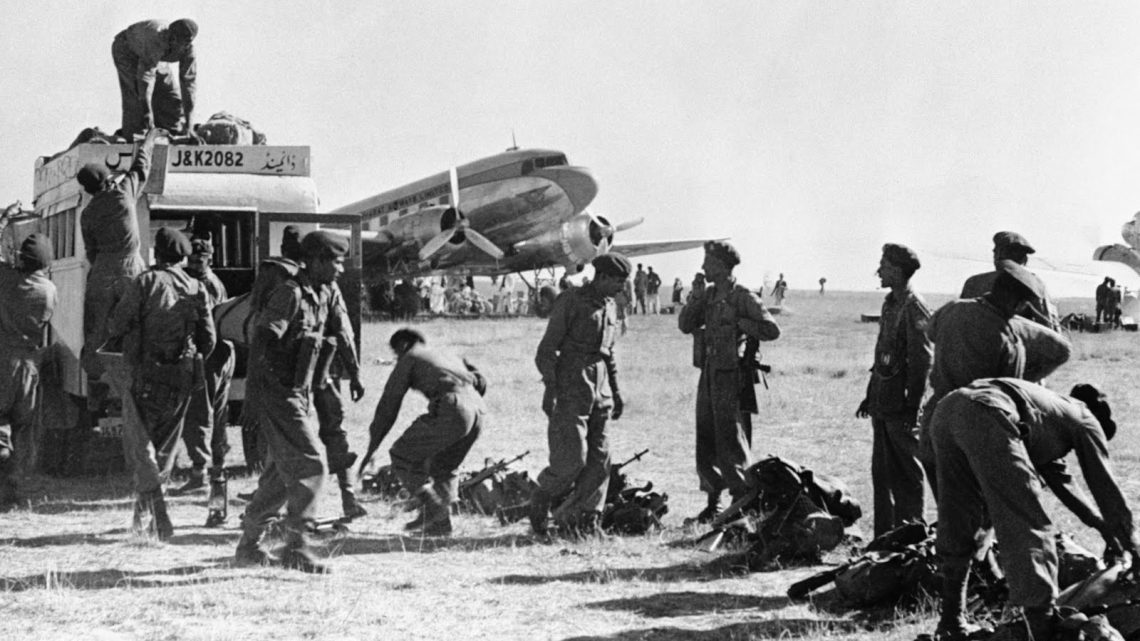
October 27, 1947: A Day of Mourning for Kashmiris in IIOJK
October 7, 2024October 27, 1947, marks a sorrowful chapter in Kashmir’s history. On this day, Indian troops landed in Srinagar, initiating an occupation that has persisted for over 76 years. For Kashmiris, this was not merely a military invasion; it represented a betrayal of their right to self-determination.
The conflict traces back to the partition of India and Pakistan in 1947. Kashmir, a predominantly Muslim region, was expected to join Pakistan. However, Maharaja Hari Singh, the king, signed the Instrument of Accession to India, a decision that remains contentious and debated. India has failed to provide convincing evidence of the legality of this agreement.
Initially, India’s occupation was intended to be temporary. Promises of a plebiscite by leaders like Prime Minister Jawaharlal Nehru allowed Kashmiris to choose their future. Unfortunately, this promise has never been fulfilled. Instead, Jammu and Kashmir has faced a heavy military presence, leading to significant human rights violations.
The Kashmir issue extends beyond local or regional implications; it has become a global crisis. Since 1948, the United Nations Security Council has passed several resolutions affirming the right of Kashmiris to a referendum. Yet, India has routinely ignored these resolutions, while the international community has remained largely silent.
Over the years, the situation has worsened. Human rights organizations report numerous cases of extrajudicial killings, enforced disappearances, and torture by Indian security forces. The revocation of Article 370 in 2019, which granted Jammu and Kashmir special status, has intensified tensions and is widely condemned as a violation of international law, particularly the Fourth Geneva Convention.
India’s actions appear aimed at altering Kashmir’s demographic landscape by encouraging non-Kashmiris to settle there. This strategy is perceived as an attempt to dilute the region’s Muslim majority. The international community must take a firm stance against these violations, as they threaten regional stability.
Despite immense challenges, Kashmiris have shown remarkable resilience. Their quest for self-determination continues, exemplified through peaceful protests and calls for international intervention. This resistance illustrates their firm commitment to justice and freedom.
Pakistan has consistently advocated for Kashmir on the global stage, urging the international community to take action. The issue has been raised at the United Nations, yet responses from major powers have been muted.
As October 27 is commemorated as Black Day, it is essential to recognize that this struggle transcends territorial disputes; it is about the fundamental rights of millions. Kashmiris deserve the opportunity to choose their future without military oppression.
Global indifference cannot be tolerated. Silence in the face of such injustice deepens the suffering of Kashmiris. It is imperative for global powers, human rights organizations, and the United Nations to act decisively. The promise of self-determination is not merely a political issue; it is a basic human right.
October 27, 1947, serves as a strong reminder of broken promises and ongoing suffering in Kashmir. The world must uphold its responsibility to ensure that Kashmiris can finally exercise their right to determine their future. Only then can genuine peace be restored in this troubled region.

